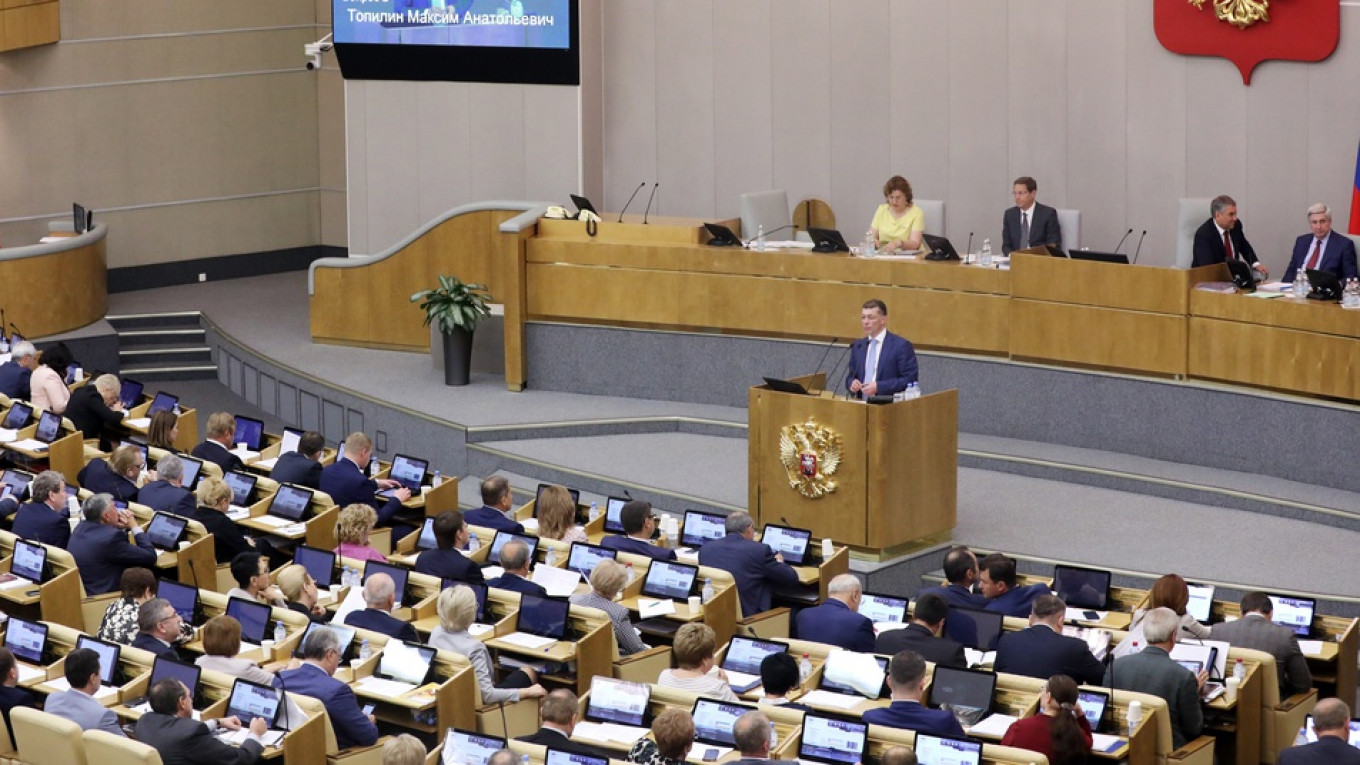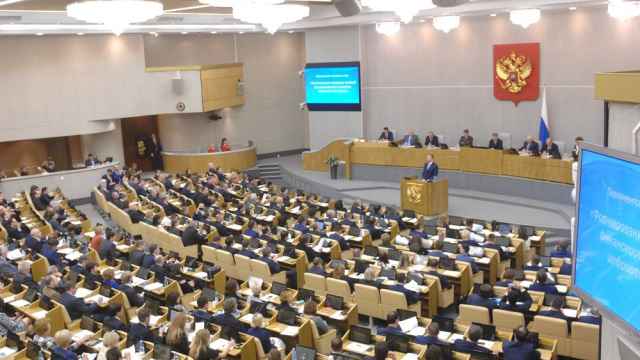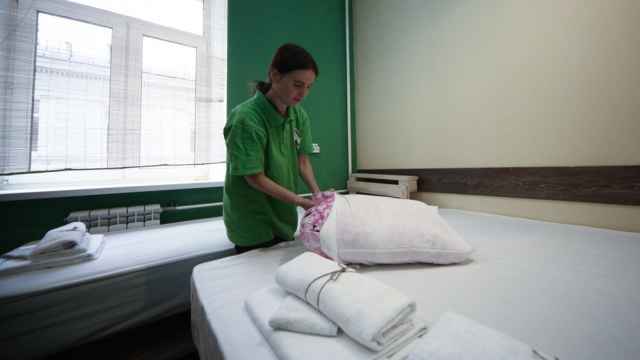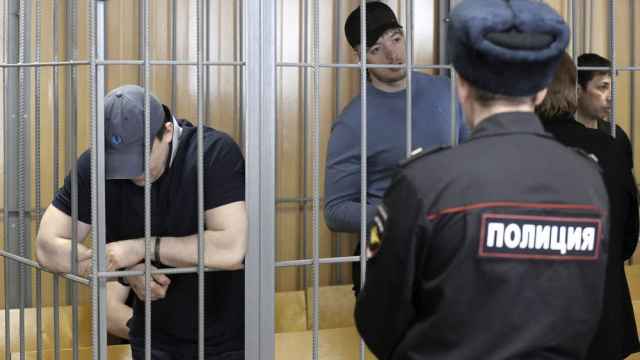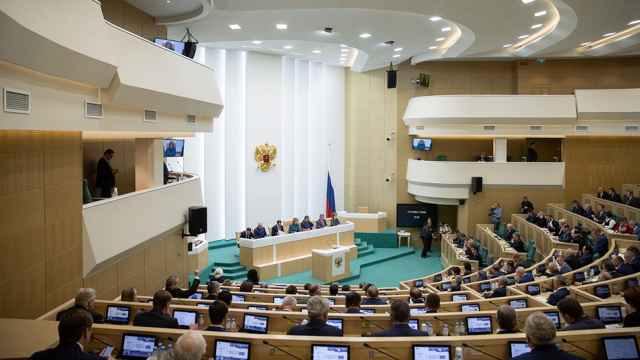Russian lawmakers have approved a divisive bill to raise the retirement age despite nationwide protests and falling approval ratings for the ruling party and President Vladimir Putin.
The government, seeking to relieve pressure on the state budget, proposed raising the retirement age for men from 60 to 65 and for women from 55 to 63 in June. Putin lowered the proposed hike for women from 63 to 60 and offered other concessions in a rare televised address last month following nationwide protests.
The State Duma voted 332-83 in favor of the bill on Thursday to begin gradually raising the pension age starting next year.
The vote took place 24 hours after lawmakers adopted Putin’s proposed amendments and approved the watered-down pension reform bill in its second reading.
Both anti-Kremlin activists and Communist lawmakers who rarely oppose government initiatives spoke out against the proposed pension age increase in a country where average life expectancy for men is 66 and 77 for women.
The Duma bill must undergo an upper-house Federation Council approval before being signed into law by Putin.
The pension reform is also believed to have affected the latest local elections in which pro-Kremlin gubernatorial candidates suffered defeats in three Russian regions this month.
Putin replaced three governors on Wednesday, including in Primorye region where election officials declared the second round of voting invalid due to violations. A third round is expected in three months.
Following the rare electoral defeats, the Vedomosti business daily reported that up to 10 more governors could be on the chopping block this year.
Reuters contributed reporting to this article.
A Message from The Moscow Times:
Dear readers,
We are facing unprecedented challenges. Russia's Prosecutor General's Office has designated The Moscow Times as an "undesirable" organization, criminalizing our work and putting our staff at risk of prosecution. This follows our earlier unjust labeling as a "foreign agent."
These actions are direct attempts to silence independent journalism in Russia. The authorities claim our work "discredits the decisions of the Russian leadership." We see things differently: we strive to provide accurate, unbiased reporting on Russia.
We, the journalists of The Moscow Times, refuse to be silenced. But to continue our work, we need your help.
Your support, no matter how small, makes a world of difference. If you can, please support us monthly starting from just $2. It's quick to set up, and every contribution makes a significant impact.
By supporting The Moscow Times, you're defending open, independent journalism in the face of repression. Thank you for standing with us.
Remind me later.


